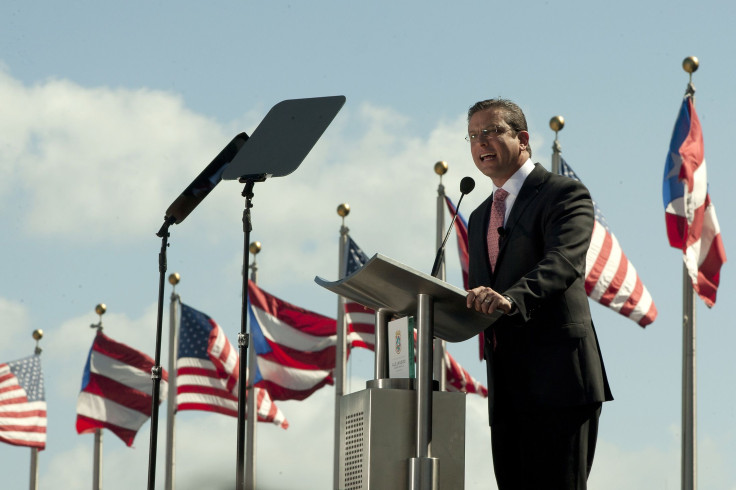
The Associated Press reported earlier this week that Puerto Rico's government has denied bankruptcy rumors and rejected the possibility that it might turn to the U.S. federal government to step in, with the executive vice president of Puerto Rico's Government Development Bank calling it "completely out of the question." In a two-and-a-half-hour conference call with investors, Gov. Alejandro Garcia Padilla sought to assuage doubts about the solvency of his government, saying that despite its eight-year recession, it would not have to default on its debts. "We will do everything, and I repeat, everything that is necessary for Puerto Rico to honor all its commitments," he said. "It's not only a constitutional but also a moral obligation."
Treasury Secretary Melba Acosta told investors during the phone call that the government would cut its $820 million budget deficit in half by 2015, and other officials emphasized that the current deficit has already been reduced from $2.4 billion. Acosta said that rumors about the U.S. government might intervene to help alleviate Puerto Rico's financial crisis were untrue, but added that U.S. officials were talking about establishing a committee devoted to boosting the commonwealth's economy. The unemployment rate in Puerto Rico is at 13.9 percent, higher than any other state or territory. Officials say they plan to increase development in industries like pharmaceuticals, biotech, medical devices, high tech manufacturing and agriculture through incentives and tax cuts, with 9,280 jobs expected to be created in those sectors over the next 12 months.
Concerns began to arise when the Government Development Bank announced that it would cut bond sales to between $500 million and $1.2 billion for the rest of the fiscal year in response to yields on Puerto Rico bonds, which investors had sent from a little over 5 percent in mid-May to over 10 percent. Puerto Rican officials have expressed frustration over those rising borrowing costs, which investors have based on the assumption that the island's debt could be defaulted on, saying that investors are hedging unfairly against the island by not taking into account upcoming reforms to Puerto Rico's pension and tax systems.
According to Reuters, those high yields were forcing Puerto Rico to rely more on private debt sales to banks instead of issuing debt on capital markets. Puerto Rico is a major issuer on the U.S. municipal bond market, with $70 billion in outstanding debt -- almost 2 percent of the $3.7 trillion market -- which investors and fund managers have long been eager to buy, because that debt is not subject to federal, state or local taxes.
RELATED: Pedro Pierluisi, PR Resident Commissioner, Pushes For Statehood
© 2025 Latin Times. All rights reserved. Do not reproduce without permission.




